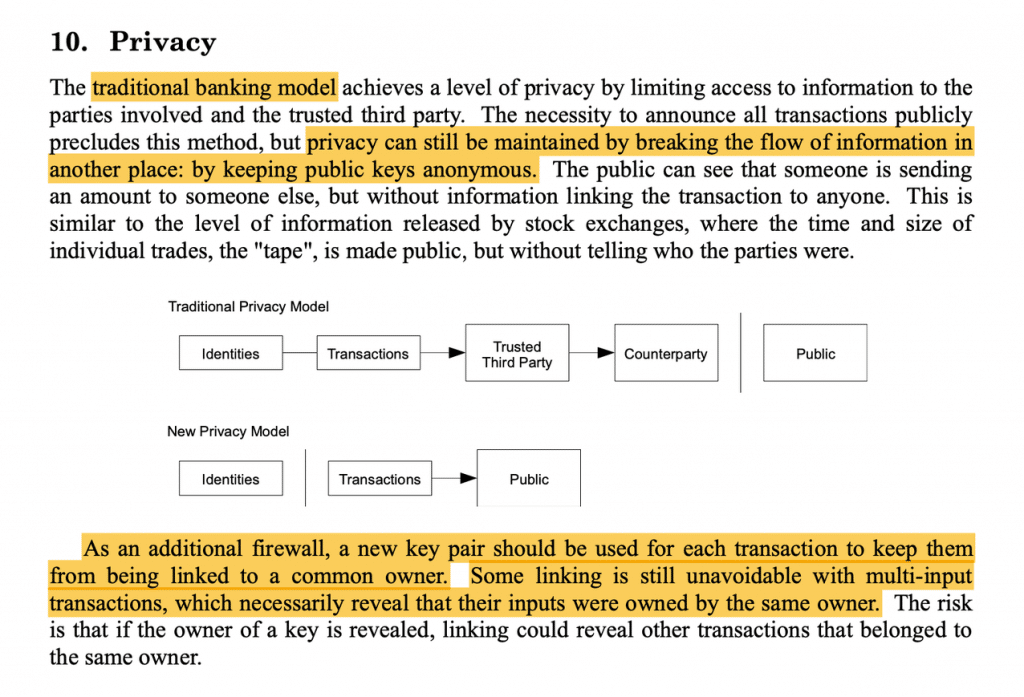Print Fix Hub
Your go-to source for everything print-related, from troubleshooting to tips.
Is Your Bitcoin Wallet a Public Diary?
Discover the surprising truth about Bitcoin wallets—are you revealing more than you think? Dive in to protect your privacy today!
Understanding Bitcoin Wallet Privacy: Is Yours Truly Anonymous?
When navigating the world of cryptocurrencies, understanding Bitcoin wallet privacy is crucial for users who value their anonymity. Contrary to popular belief, Bitcoin transactions are not completely anonymous. Instead, they are pseudonymous. This means that while transactions between wallets do not directly reveal the identity of the wallet holder, the public ledger (the blockchain) allows anyone to trace transactions back to specific wallet addresses. Because of this inherent traceability, it is essential to understand how Bitcoin wallet privacy works and what measures can be taken to enhance it.
To boost your Bitcoin wallet privacy, consider implementing techniques such as using a new address for each transaction, utilizing mixing services or tumblers, and exploring privacy-focused wallet options like Wasabi or Samourai Wallet. Additionally, it's important to be cautious about sharing your wallet address publicly and be aware of how your online activities may inadvertently link your identity to your Bitcoin transactions. By taking these steps, you can better protect your financial privacy while engaging in the Bitcoin ecosystem.

Counter-Strike is a popular multiplayer first-person shooter game that has captivated gamers worldwide. Players can choose to be part of either the terrorist or counter-terrorist team, engaging in various game modes. For those looking to enhance their gaming experience, using a cloudbet promo code can provide exciting rewards.
The Truth About Bitcoin Wallet Addresses: A Closer Look at Public Visibility
When exploring the world of cryptocurrencies, understanding Bitcoin wallet addresses is crucial. These addresses serve as unique identifiers for receiving and sending Bitcoin, functioning similarly to an email address. However, it’s important to note that these addresses are publicly visible on the Bitcoin blockchain, which allows anyone to see the transactions associated with a specific wallet. This transparency can be a double-edged sword; while it enhances security and trust in the network, it also raises privacy concerns. Users must be cautious, as anyone with access to the wallet address can monitor its activities.
Moreover, the concept of public visibility extends beyond mere tracking of transactions. It also impacts how users approach the management of their Bitcoin assets. Many crypto enthusiasts advocate for using new wallet addresses for every transaction to enhance privacy. By doing so, they prevent others from easily linking multiple transactions to a single wallet, thereby safeguarding their financial privacy. Understanding this aspect of Bitcoin wallet addresses is essential for users who want to navigate the cryptocurrency space securely and responsibly.
Can Someone Track My Bitcoin Transactions? Debunking Wallet Myths
In the world of cryptocurrencies, the question, Can someone track my Bitcoin transactions? often arises among new users. It's essential to understand that Bitcoin operates on a public ledger known as the blockchain, which means that every transaction is recorded and visible to anyone with access to the network. However, while the transaction details, such as sender and receiver addresses, are publicly available, Bitcoin transactions are pseudonymous. This means that while your transaction can be seen, your identity is not directly linked to those addresses unless you reveal it through other means, like using your Bitcoin wallet for everyday purchases that require personal identification.
Many myths circulate about the tracking of Bitcoin, such as the belief that transactions can be easily traced back to individuals. In reality, advanced blockchain analysis tools exist, but they primarily operate by identifying patterns and connections rather than pinpointing exact identities. Users can enhance their privacy by adopting practices such as using new wallet addresses for each transaction or utilizing privacy-centric cryptocurrencies. Ultimately, while some aspects of transactions are trackable, safeguarding your identity remains possible with mindful practices.